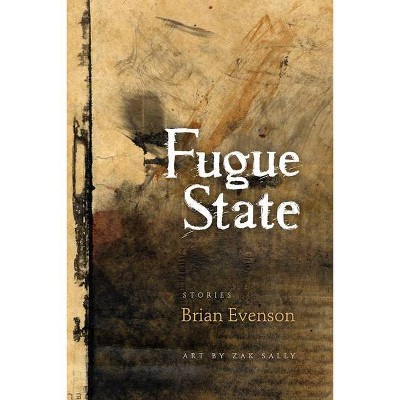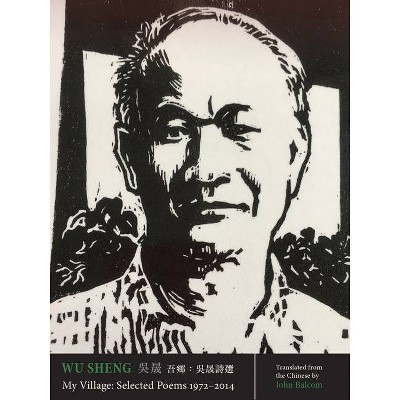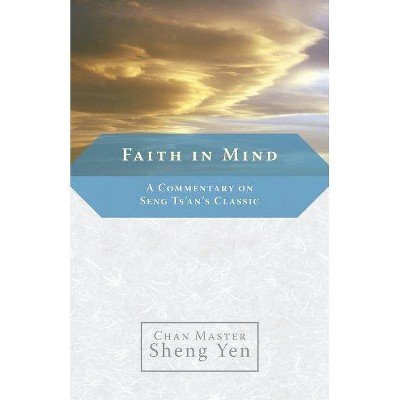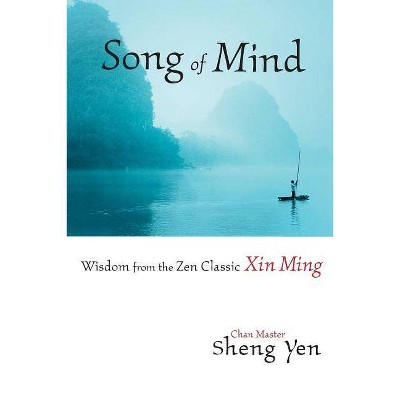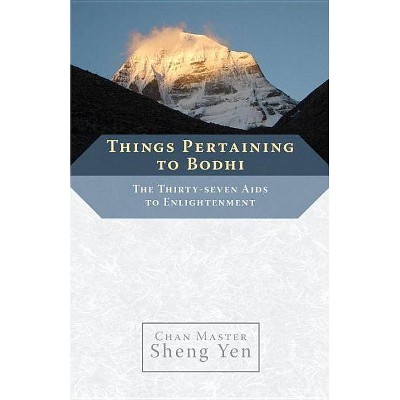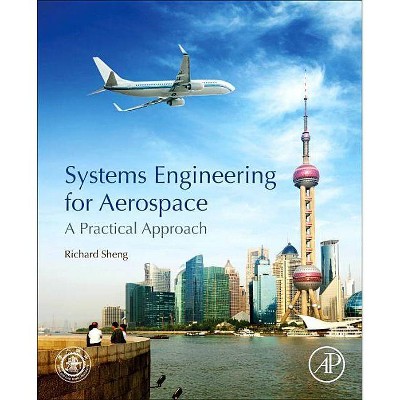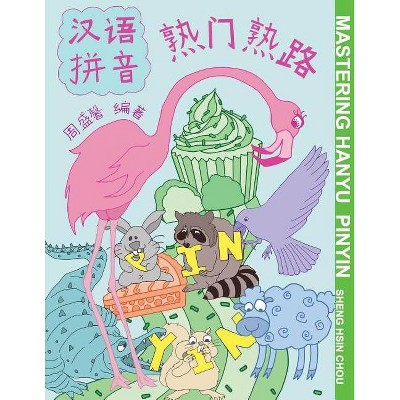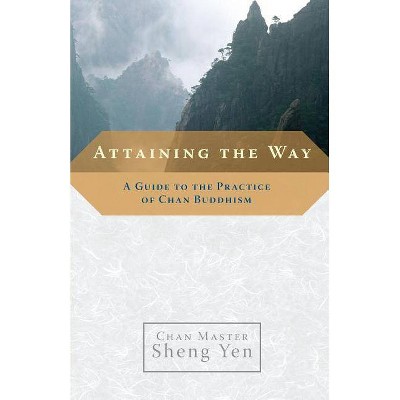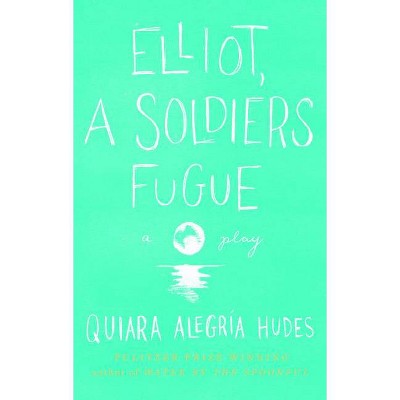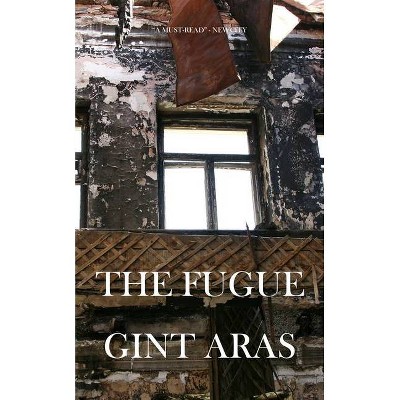Death Fugue - by Sheng Keyi (Paperback)
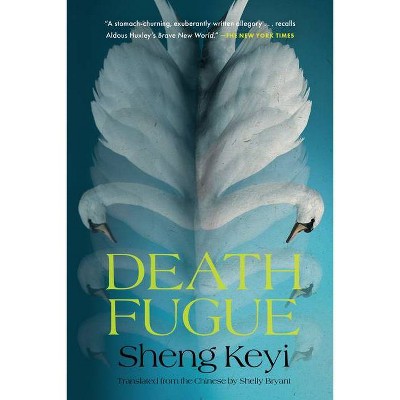
Similar Products
Products of same category from the store
AllProduct info
<p/><br></br><p><b> About the Book </b></p></br></br>"First published as Séiwâang fáugâe by Ink Books, Taiwan, 2012"--Copyright page.<p/><br></br><p><b> Book Synopsis </b></p></br></br><p><b>Banned in China for its taboo allusions to the Tiananmen Square massacre, Sheng Keyi's <i>Death Fugue</i> is a lyrical and explosive dystopian satire that imagines a world of manufactured existence, the erasure of personal freedom, and the perils of governmental control.</b><br>One morning a nine-story tower of excrement of unknown origin appears in the center of Dayang's capital, Beiping. The government swiftly scrubs the scene of all evidence and hands down its final word: Do not ask questions; dissent will be punished. But the crowd gathered in Round Square to witness the Tower Incident for themselves only grows and soon explodes in unrest. Poet Mengliu and his girlfriend Qizi join the uprising, but thousands disappear in the brutal crackdown that follows, including Qizi, the newly appointed protest leader. Mengliu abandons poetry and revolution but never gives up hope that Qizi may still be alive. <p/>Years later, on his annual journey in search of Qizi, Mengliu washes ashore in the idyllic country of Swan Valley, a world of dreamlike beauty, perfection, and youth. But the dream becomes a nightmare as he slowly begins to unravel the secrets of Swan Valley, discovering that the perfect society exists at a deep, inhumane cost. <p/>Boldly absurdist yet eerily prescient, award-winning author Sheng Keyi's <i>Death Fugue</i> barrels out of the void left by generations of state-imposed silence in modern-day China, where it remains banned from publication. It is a rogue artist's answer to a profound question of our times: What is the role of art after atrocity? </p><p/><br></br><p><b> Review Quotes </b></p></br></br><br><p>"<i>Death Fugue </i>considers communism and capitalism, courage and the spirit. It is the story of one person determining how they might create a better world, of a society debating the right path forward.... <i>Death Fugue</i> will be all too relatable to a Western reader. Entreaties for resistance while memories of injustice remain fresh are hardly unknown here. And when Beiping's media leans on their favorite, counter-public-opinion experts to favor the police, when unmarked vans round up peaceful protesters, or when urban and rural citizens split over the value of revolt, Keyi's world doesn't seem distant."</p><p><b>--Colton Alstatt, </b><i><b>ZYZZYVA</b></i></p><p></p><br><br><p>"Sheng is working in a tradition that includes George Orwell, Aldous Huxley, Philip K. Dick, Margaret Atwood and other keen critics of human folly. But if <i>Death Fugue</i> nods to those predecessors, it's fueled entirely by Sheng's own elixir of genius and rage.... It's not an easy read, but in a crowded field of dystopian fiction, it's destabilizing and finally enlightening in a wholly unique way..... This infinitely twisty novel couldn't elude Chinese censors, but it still managed to slip out into the world and shout its scorching critique of the ongoing humiliation of the human spirit."</p><p><b>--Ron Charles, <i>The Washington Post</i></b></p><br><br><p>"<i>Death Fugue</i> depicts a world of deforming power and abused desire collapsing under the weight of hubristic self-creation. Grotesquerie, lyricism, anomie, cool humour and ironic grandiosity play together in a fugal manner, now andante, now scherzo, always returning to the vision of doom from which this world is in flight.... Plenty of <i>Death Fugue</i> is gorgeous... Much of it has a shocking immediacy, especially the scenes at the Square, rendered in subtly attentive prose of gripping power.</p><p><b>--Nicholas Jose, <i>Sydney Review of Books </i></b></p><br><br><p>"<i>Death Fugue</i> is a sophisticated allegory for the 1989 Tiananmen Square massacre and its aftermath.... What Sheng Keyi has done in this novel is to create a 'secret path' to tell the story of the lost generation born in the 1970s, damned by the authorities if they joined the pro-democracy movement; or damned by their own consciences if they didn't."</p><p><b>--Lisa Hill, Anz LitLovers LitBlog</b></p><br><br><p>"[<i>Death Fugue</i>] is full of clever observations, energy, wit, imaginativeness, and endless lush, colorful landscapes that toe the line between the beautiful and the fantastical. Its absurdity, while at times wholly unhinged, is also at times exciting and funny... "</p><p><b>--Amanda Calderon, Words Without Borders </b></p><br><br><p>"A withering, absurdist allegory of the Tiananmen Square massacre of 1989 and the shadows the events have cast on a generation."</p><p><b>--Philip Wen, <i>Sydney Morning Herald </i></b></p><br><br><p>"From Tiananmen, Sheng's novel moves into an imagined future one-party dystopia, a brave new world with Chinese characteristics that she calls Swan Valley. One thing the authorities did about it was to ban <i>Death Fugue</i> in China, but it circulates informally anyway and has been published in translation abroad. She should get an A+ for moxie, and has admirers in China among readers who can get hold of the book."</p><p><b>--<i>The New York Review of Books</i></b></p><br><br><p>"Now a prominent novelist and a denizen of Beijing literary circles, Ms. Sheng eventually fashioned that turning point in contemporary Chinese history into a stomach-churning, exuberantly written allegory, Death Fugue, which recalls Aldous Huxley's <i>Brave New World</i>."</p><p><b>--Jane Perlez, <i>The New York Times</i></b></p><br><p/><br></br><p><b> About the Author </b></p></br></br><p>About the Author: </p><p><b>Sheng Keyi </b>was born in a small town in southern China and has lived in Shenzhen and Beijing. She is the author of ten novels, including <i>Northern Girls</i>, <i>Death Fugue</i>, <i>Wild Fruit</i>, <i>The Metaphor Detox Centre</i>, <i>The Womb</i>, and <i>Paradise</i>, as well as numerous short stories and novellas. Her work has been translated into a number of foreign languages and published all over the world. She has received several literary awards, including the Chinese People's Literature Prize, the Yu Dafu Prize for Fiction, and the Chinese Literature Media Award. Her debut novel in English translation, Northern Girls, was longlisted for the Man Asian Literary Prize in 2012.</p><p> About the Translator: Shelly Bryant divides her year between Shanghai and Singapore, working as a poet, writer, and translator. She is the author of eleven volumes of poetry (Alban Lake and Math Paper Press), a pair of travel guides for the cities of Suzhou and Shanghai (Urbanatomy), a book on classical Chinese gardens (Hong Kong University Press), and a short story collection (Epigram Books). She has translated work from the Chinese for Penguin Books, Epigram Publishing, the National Library Board in Singapore, Giramondo Books, HSRC, Rinchen Books, and Maclehose Press and edited poetry anthologies for Alban Lake and Celestial Books. Shelly's poetry has appeared in journals, magazines, and websites around the world, as well as in several art exhibitions. Her translation of Sheng Keyi's <i>Northern Girls</i> was longlisted for the Man Asian Literary Prize in 2012, and her translation of You Jin's <i>In Time, Out of Plac</i>e was shortlisted for the Singapore Literature Prize in 2016. Shelly received a Distinguished Alumna Award from Oklahoma Christian University of Science and Arts in 2017. You can visit her website at shellybryant.com</p>
Price History
Cheapest price in the interval: 19 on November 8, 2021
Most expensive price in the interval: 19 on December 20, 2021
Price Archive shows prices from various stores, lets you see history and find the cheapest. There is no actual sale on the website. For all support, inquiry and suggestion messages communication@pricearchive.us
